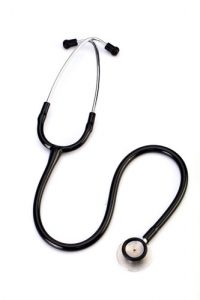Are Probiotics Worthless?
Author: Dr. Stephen Chaney
 Probiotics (friendly gut bacteria) are all the rage. There is big money to be made, so the internet is ablaze with all the amazing things probiotics can do for you. Of course, most of those articles are posted by companies wanting to sell you their miracle mixture of probiotic bacteria.
Probiotics (friendly gut bacteria) are all the rage. There is big money to be made, so the internet is ablaze with all the amazing things probiotics can do for you. Of course, most of those articles are posted by companies wanting to sell you their miracle mixture of probiotic bacteria.
In the last few weeks, you may have seen headlines proclaiming that probiotics are worthless. You just poop them out. Even worse, they may be upsetting the natural balance of bacteria in your gut. Are probiotics bad for you? They may be.
As usual, the truth is somewhere in the middle. Before I start sorting out fact from fiction, let me remind you of some important facts about gut bacteria that I covered in a recent article of “Health Tips From The Professor”:
- The composition of bacteria in our gut is influenced by what we eat. For example, meat eaters have a completely different composition of gut bacteria than vegetarians.
- Fiber from whole plant foods is a major food source for healthy gut bacteria.
- Each plant-based food group and each food within that group has a unique blend of fibers. We should probably aim for a wide variety of whole plant foods in our diet.
Are Probiotics Worthless?
 Let’s start with the study (N. Zmora et al, Cell 174, 1388-1405, 2018 ) that generated the headlines proclaiming that probiotics were worthless.
Let’s start with the study (N. Zmora et al, Cell 174, 1388-1405, 2018 ) that generated the headlines proclaiming that probiotics were worthless.
The characteristics of the study with my comments are as follows:
- The study had 15 subjects who were given either a commercially available probiotic supplement or a placebo containing cellulose. It was a very small study.
- The probiotic supplement contained 25 billion colony forming units of 11 commonly used strains of bacteria. Its manufacturer claimed the bacteria survived stomach acid and colonized the intestine, but no references were given for published clinical studies backing up that claim. It is buyer beware in the supplement industry. I would not believe any claims about a probiotic supplement that were not backed up by published clinical studies.
- The investigators measured bacterial colonization of the mucosal cells lining the intestine rather than the population of bacteria that ended up in the feces. This is the “gold standard” for measuring colonization of the intestine by probiotic bacteria. However, it requires a colonoscopy before the study started and a second colonoscopy 3 weeks later. As any of you who have had a colonoscopy can attest, this is a very invasive procedure. It probably accounts for the small size of the study. In fact, the study started with 28 subjects and 13 dropped out, one after suffering a serious adverse reaction to the first colonoscopy. My point is simply that I don’t expect to see a lot of this type of study.
 The results of the study with my comments are as follows:
The results of the study with my comments are as follows:
- Overall, the particular probiotic supplement used in this study didn’t work very well. There was minimal colonization of the intestinal mucosal cells by the bacteria in the probiotic supplement. Some did better than others, but the net colonization was small. We don’t know whether the results would have been the same with other probiotic supplements, but this is the finding that generated all the headlines. However, it is the rest of the study that is interesting.
- The probiotic supplement worked better for some subjects than for others. Some of the subjects in the study were “permissive.” The probiotic cells colonized their intestinal mucosal cells with high efficiency. Other subjects were “resistant.” Probiotic bacteria had a great deal of difficulty colonizing their intestinal mucosal cells. This doesn’t surprise me. Most clinical studies report an average result. They don’t report individual variations. This is one of the first studies to report on individual variation of probiotic colonization. As such, it has important implications. It means that even though you may be taking a probiotic supplement that has been “clinically proven” to survive stomach acid and colonize the intestine, it may not work well for you. But, wait, the study gets even more interesting.
- How well the probiotic supplement worked depended on the population of bacteria in the intestine to begin with. “Permissive” and “resistant” subjects had very different species of bacteria in their intestine at the beginning of the trial. There was a characteristic grouping of bacteria in “permissive” subjects and a different characteristic grouping of bacteria in “resistant” subjects. This is the part of the study that should have generated headlines. Let’s put this part of the study into perspective.
We each have around 38 trillion bacteria in our intestines. Let’s assume that all 25 billion bacteria in the probiotic supplement make it into the intestine intact. You have just dropped them into hostile territory where they are outnumbered 1,000 to 1. We know that some bacteria secret substances that support the growth of “like-minded” bacteria. That’s why certain species of bacteria tend to cluster together. We also know that bacteria secret toxins, so they can out-compete bacteria they don’t like. So, it is no wonder the survival of the probiotic bacteria depends on which species of bacteria are already populating the intestine when they arrive on the scene.
This study leaves a lot of unanswered questions:
- What determined the original population of gut bacteria? Was it the genetics or health of the subject? Or, was it the food they were eating? We simply don’t know.
- We were sending these probiotic bacteria into hostile territory. Were we giving them the food they needed to survive? Would the results have been different for the “resistant” subjects if they had been eating a different kind of fiber-rich foods, or taken a prebiotic supplement? Again, we just don’t know.
If we want to optimize the results of probiotic supplementation, these are the questions we should be asking.
Are Probiotics Bad For You?
 Now, let’s turn to the study (J. Suez et al, Cell 174, 1406-1423, 2018) generating the headlines saying that probiotic supplements may be bad for you. This study was looking specifically at the use of probiotics following antibiotic use.
Now, let’s turn to the study (J. Suez et al, Cell 174, 1406-1423, 2018) generating the headlines saying that probiotic supplements may be bad for you. This study was looking specifically at the use of probiotics following antibiotic use.
The study reported when probiotics are used following antibiotic use, they delay, rather than enhance, the recovery of intestinal bacteria back to the same number and type of bacteria that existed prior antibiotic use. That’s the finding that generated all the headlines. Let’s put that into perspective.
Both the headlines and interpretation of the data were inaccurate.
- Probiotics actually had a relatively small effect on the ability to regain your “normal” population of intestinal bacteria. The headlines made it sound as if the delay was significant and that you never regained your “normal” population of intestinal bacteria. In fact by one measure, the population of intestinal bacteria was 70% normal by 5 days, 80% normal by 20 days, and 95% normal by 90 days.
- Poop pills work better but will probably never be popular. When the investigators extracted intestinal bacteria from the subject’s poop and put them into pills prior to the study, the poop pills restored the “normal” population of intestinal bacteria much more quickly. However, I doubt that poop pills will become popular any time soon.
- Your “normal” population of intestinal bacteria may not be the optimal population of intestinal bacteria. The headlines implied that the fact you never recovered your “normal” population of intestinal bacteria was a bad thing. That assertion assumes that all of us have the optimal population of intestinal bacteria to begin with, an assertion that almost any expert in the field would find absurd. The last time I checked, one of the major reasons for taking probiotic supplements was to change our population of intestinal bacteria for the better.
The study ignores the major reasons for taking a probiotic supplement after antibiotic use. Most people are not taking the probiotic supplement to restore their original population of intestinal bacteria. They are taking it to:
- Prevent “bad guys” like yeast from filling the void caused by the antibiotics.
- Improve digestion. Some strains of intestinal bacteria play an important role in digestion. Because antibiotics wipe out those bacteria, they often cause gas, diarrhea, and bloating. After antibiotic use, people are taking probiotic bacteria with digestive benefits to eliminate those digestive issues as quickly as possible.
- Strengthen the immune system. People are generally taking antibiotics to fight some sort of infection. Some strains of intestinal bacteria play an important role in immunity. Because antibiotics wipe out those bacteria, they weaken the immune system. After antibiotic use, people are taking probiotics to strengthen the immune system as quickly as possible
In short, taking probiotic supplements that are proven to improve digestion and strengthen the immune system play an important role in minimizing the side effects of antibiotic use.
What Does This Mean For You?
 At the beginning of this article I said; “The truth lies somewhere in between.” The first study is a perfect example.
At the beginning of this article I said; “The truth lies somewhere in between.” The first study is a perfect example.
- It was valuable in that it challenged the assertion by some manufacturers that their probiotics survive stomach acid and work equally well for everyone. At the very least, it suggests that we should demand clinical proof that any probiotic supplement colonizes the intestine and provides a health benefit before we use it.
- The most interesting finding from the first study is that probiotics work much better for some people than for others, and how well they work depends on the population of bacteria in our gut prior to taking the antibiotic. We have much more to learn about this individual variability, and how to control it.
Until we know more, my best advice is to eat a fiber-rich, primarily plant-based diet with as many different varieties of fruits, vegetables, whole grains, and legumes as possible. Providing a variety of fibers is important because at least some of them will likely support the growth of the bacteria in the probiotic supplement. Prebiotics may be of some help, but only if they have been shown to be effective for the particular strains of probiotic bacteria they are paired with.
The second study was much less enlightening. It reported that taking a probiotic after antibiotic use slowed the return to the original population of intestinal bacteria. My response to that is: “So what?”
- The effect was minimal.
- The purpose of probiotics is to improve on the population of intestinal bacteria, not to return to the same population of bacteria you had prior to antibiotic use.
- Probiotics are taken after antibiotic use for reasons that have nothing to do with restoring the original population of intestinal bacteria.
The Bottom Line
Two recent studies have challenged the benefits of probiotic use.
The first study provided some valuable insights.
- It reported that a particular probiotic supplement did a very poor job of colonizing the intestine. We have no idea whether that would apply to other probiotic supplements, but that was the result that generated all the headlines. At the very least, it suggests that we should demand clinical proof that any probiotic supplement colonizes the intestine and provides a health benefit before we use it.
- However, the most interesting finding from the first study is that probiotics work much better for some people than for others, and how well they work depends on the population of bacteria in our gut prior to taking the antibiotic. We have much more to learn about this individual variability, and how to control it.
The second study was much less enlightening. It reported that taking a probiotic after antibiotic use slowed the return to the “normal” population of intestinal bacteria that were present before antibiotic use. My response to that is: “So what?”
- The purpose of probiotics is to improve on the population of intestinal bacteria, not to return to the same population of intestinal bacteria you had prior to taking an antibiotic.
- Probiotics are taken after antibiotic use for reasons that have nothing to do with restoring the original population of intestinal bacteria.
For more details, read the article above.
These statements have not been evaluated by the Food and Drug Administration. This information is not intended to diagnose, treat, cure or prevent any disease.
